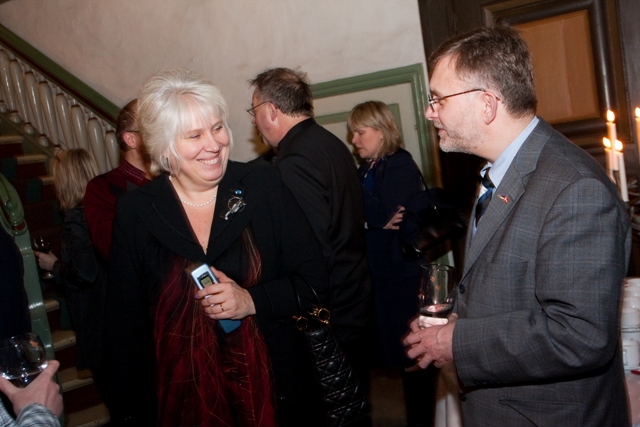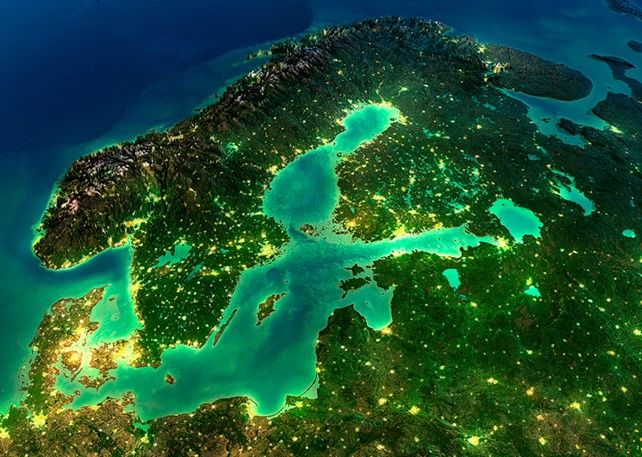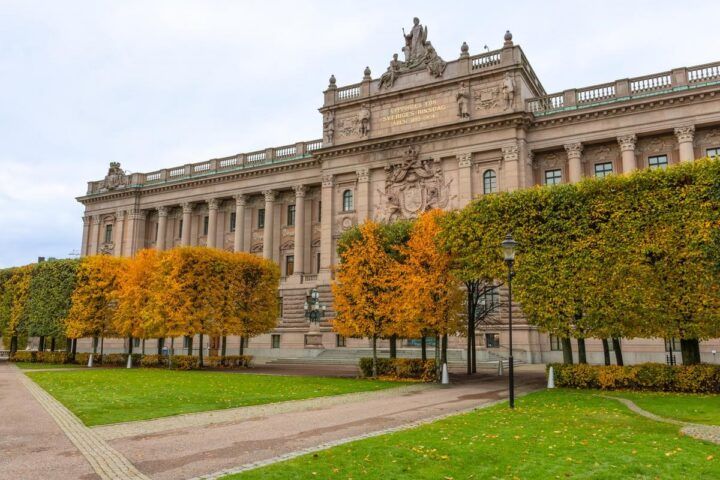Every crisis opens new doors and creates new opportunities

|
“Today we can see that the political and financial decisions taken in Estonia were right, but nothing has come for free – it’s come at a significant cost,” said Kaljurand at a reception of the Finnish, Swedish, Danish Chambers of Commerce in Estonia and the Nordic Council of Ministers (NCM) Office in Estonia in February. “Cuts in wages, cuts in personnel, the high unemployment rate and lost jobs are all personal tragedies, and there is uncertainty about the future.” |
| From an aid office to a partnership The Estonian office of the NCM, in association with the chambers of commerce, organised the reception in February as part of celebrations marking the 92nd anniversary of the Republic of Estonia. Looking at Estonia’s past, present and future from a Nordic perspective were Carita Pettersson, the director of the Estonian office of the NCM; Marina Kaljurand from the Estonian Ministry of Foreign Affairs; and Martin Breuer, the Chairman of the Board of the Foreign Investors Council of Estonia. Given that the NCM has been represented in Estonia since 1991, it may come as a surprise to some that the office had never previously organised a reception for entrepreneurs, stated Pettersson. “The reason is obvious: our priorities have changed,” she explained. “In the 1990s we were very much an aid office, but today, in particular since Estonia has become an EU member, and in accordance with our guidelines, which were approved by the Nordic governments and by the Estonian government, we cooperate on a partnership level for mutual Baltic and Nordic benefit.” Pettersson highlighted the fact that the Nordic countries and Baltic States have a joint business and industry mobility programme in which one of the highest priority areas of support at present is the creative economy. “We’re trying to promote partnerships and a business environment for companies capable of generating welfare and jobs in the Baltic Sea region by using intellectual property,” she said. Expectations of foreign investors Overall, Estonia and the Nordic countries have so far coped relatively well with the financial crisis. Examined more closely, however, you sometimes see that one country’s luck in the Baltic Sea region – which is very closely interlinked – is another country’s misfortune. For example, Estonia is pleased that Nordic investors have found their way back to the country. Kaljurand noted that she had recently read in a newspaper how the Finnish company Incap is planning to close its factory in Voukatti, retrench 130 workers and launch production on the Estonian island of Saaremaa. “Of course we’re happy that we’re doing comparatively well, but we’d be happier if the region as a whole were successful and prosperous,” Kaljurand said. Breuer, speaking on behalf of foreign investors in the country, also noted that Estonia has withstood the crisis remarkably well. However, he also remarked that the state now has to take decisive steps to get the economy back on the path of growth and to keep it there. Since Estonians themselves no longer have money to invest, funds need to flow in from outside. For this to be achieved, investors need lower labour costs, particularly compared to Finland, Sweden, Denmark, Germany and even Poland. Breuer said that amongst other things, tax burden and bureaucracy also need to be slashed and infrastructure and air connections improved. The key word for the future in the Estonian economy, said Breuer, should be prudence. “The saying that ‘seven lean years are followed by seven fat years’ gives us hope, but it also warns us to be prudent,” he said. “Then the seven fat years might turn out to be 14 healthy years.” “Every crisis is a window for opportunity,” said Kaljurand. “As one door closes another one opens, as long as you don’t ignore it or choose to stay imprisoned in a locked room with closed doors and windows.” This is equally true in the Baltic Sea region, where the people may be different but still share similarities. They are connected by their values and interests, the way they look at things, and their sense of humour. They also share cold winters and plenty of snow – and in fact the day of the reception saw the Swedish, Estonian and Norwegian attendees sharing their excitement and pride at the three countries’ haul of medals in women’s skiing at the Winter Olympics in Vancouver. |


